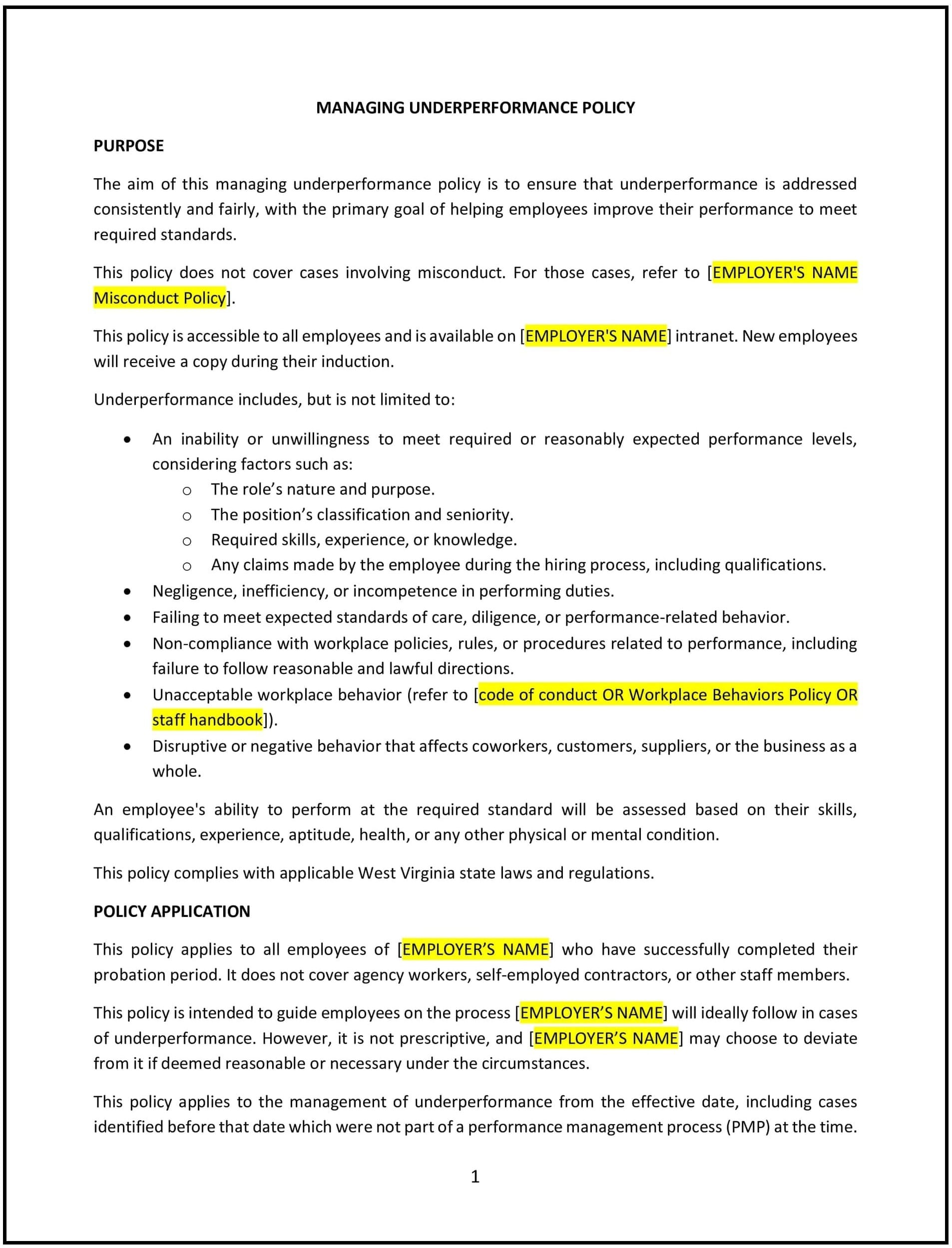Managing underperformance policy (West Virginia): Free template
Got contracts to review? While you're here for policies, let Cobrief make contract review effortless—start your free review now.

Customize this template for free
Managing underperformance policy (West Virginia)
In West Virginia, a managing underperformance policy provides a structured approach to addressing employee performance issues in a fair, consistent, and supportive manner. This policy ensures that employees understand performance expectations, receive constructive feedback, and are given the opportunity to improve. It also supports compliance with employment laws and protects the organization from potential disputes.
The policy outlines the process for identifying, addressing, and resolving underperformance while promoting accountability and professional development.
How to use this managing underperformance policy (West Virginia)
- Define performance expectations: Clearly communicate job responsibilities, goals, and performance standards to all employees.
- Identify underperformance: Outline the process for recognizing performance issues, such as missed targets, poor quality of work, or consistent behavioral concerns.
- Provide constructive feedback: Detail how managers should provide feedback, focusing on specific examples and actionable recommendations for improvement.
- Implement improvement plans: Include a step-by-step process for creating and monitoring performance improvement plans (PIPs), specifying timelines and measurable goals.
- Support compliance: Ensure the policy aligns with West Virginia labor laws and federal regulations to avoid legal risks and promote fairness.
Benefits of using a managing underperformance policy (West Virginia)
- Encourages accountability: Sets clear expectations and holds employees responsible for meeting performance standards.
- Promotes fairness: Provides a consistent and transparent process for addressing underperformance across the organization.
- Supports employee development: Offers resources and support to help employees improve and succeed in their roles.
- Protects the organization: Reduces legal risks by documenting performance issues and the steps taken to address them.
- Enhances workplace culture: Demonstrates the organization’s commitment to fostering a supportive and high-performing work environment.
Tips for using a managing underperformance policy (West Virginia)
- Train managers: Provide training on identifying and addressing underperformance, giving constructive feedback, and implementing improvement plans effectively.
- Document the process: Maintain detailed records of all discussions, feedback, and actions taken to address underperformance.
- Offer support: Provide resources such as training programs, mentorship, or coaching to help employees improve.
- Monitor progress: Regularly review the employee’s progress against their performance improvement plan and adjust goals if needed.
- Review periodically: Update the policy to reflect changes in West Virginia labor laws or organizational practices.